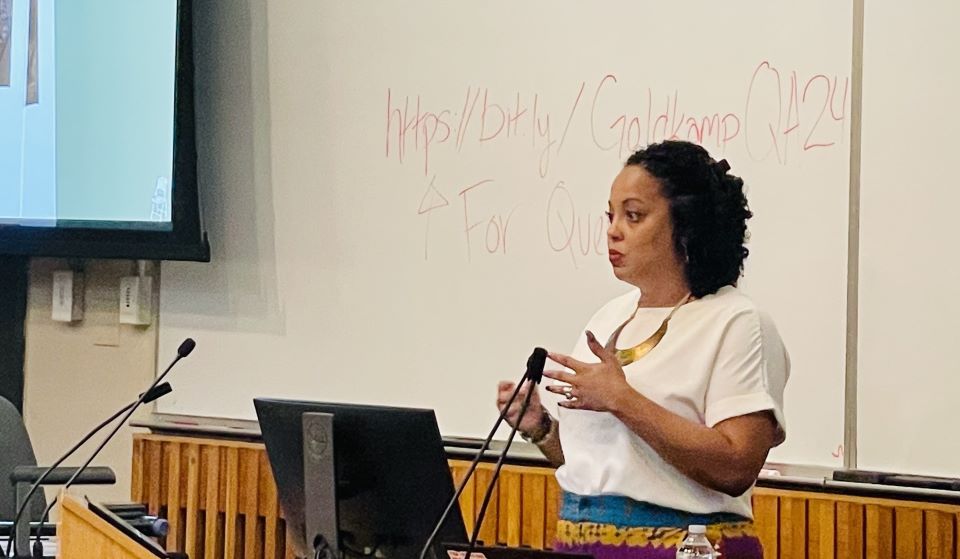The Department of Criminal Justice held its annual Goldkamp Lecture, on Friday, October 4th, in memory of the late Professor John Goldkamp, recognizing his significant contributions to criminal justice research. Each year, graduate students nominate potential speakers, followed by a student vote to finalize the selection. This year, the department was pleased to have Dr. Brittany Battle from Wake Forest University speak on topics related to abolition feminism. At the beginning of the lecture, Dr. Brittany Battle, drawing on the work of key abolitionist Angela Y. Davis, emphasized that the foundation of freedom is linked to safety. However, based on her research and advocacy work, she argued that the current criminal justice system not only fails to make us feel safe but also causes more harm, especially for marginalized groups such as women, people of color, and LGBTQ individuals, who are often subject to increased violence by the system. For example, in carceral settings, sexual violence against those with minority backgrounds is common.
Despite relying on the current criminal justice system to prevent crimes, including the widespread use of mass incarceration, an American is sexually assaulted every 68 seconds. This raises crucial questions: Does the current criminal justice system truly make us safe? Why do policymakers continue to invest billions of dollars into the current criminal justice system, despite its failure to achieve the desired outcomes? The results highlight the importance and the need for abolition. Dr. Battle also addressed the common misunderstandings surrounding abolition by explaining its core principles and potential as a future solution. She emphasized that abolition feminism seeks to dismantle oppressive systems and address the harm caused by the traditional criminal justice system, which often perpetuates cycles of violence, particularly in cases of gender-based violence. In contrast, abolition focuses on liberatory praxis, encouraging communities to divert resources from the ineffective criminal justice system to sectors that could address fundamental economic, social, and political issues. More importantly, a key element of abolition is amplifying the voices of victims and survivors, whose needs are often overlooked by the current justice system. By integrating transformative or restorative justice, abolition aims to repair harm and restore harmony, ultimately creating safer communities. Despite facing resistance in academia, Dr. Battle noted that change is already underway, concluding with a powerful message from her advocacy work: We have nothing to lose, but our chains!

